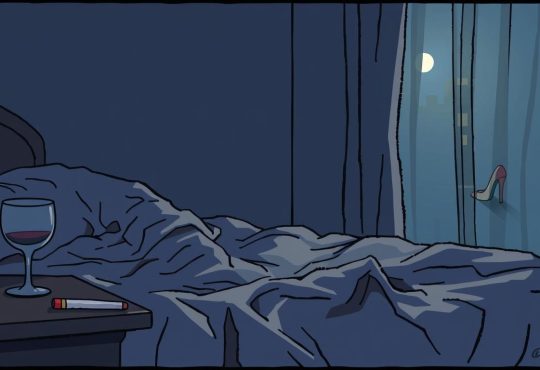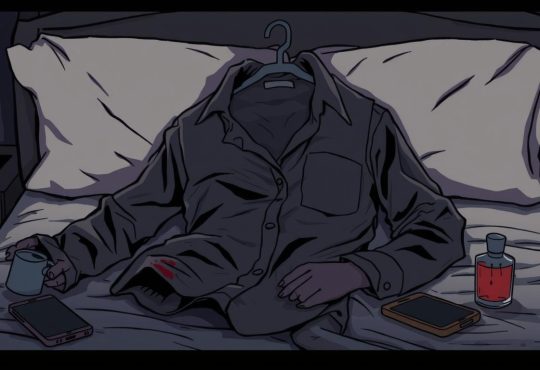
Have you ever wondered if your partner’s behavior has changed in ways that feel off? Relationships thrive on trust and communication, but sometimes, subtle shifts can signal deeper issues. Recognizing these signs early can help you address concerns before they escalate.
Over time, small changes in a person’s habits or attitude may reveal patterns worth noting. For instance, increased secrecy around their phone or unexplained absences could be red flags. Friends might also act differently, hinting at something they’re not saying.
While individual behaviors might seem minor, together they can paint a concerning picture. Trusting your intuition and observing these signs can empower you to take action. Let’s explore the key behaviors that may indicate a problem in your relationship.
On this Page:
Warning Signs That Demand Your Attention
Noticing shifts in your partner’s behavior can be unsettling, especially when they seem out of character. These changes often hint at deeper issues that need addressing. Paying attention to subtle cues can help you understand what’s really going on.
Suddenly Unreachable and Defensive Communication
When a partner becomes hard to reach or avoids conversations, it’s a red flag. They might dodge questions or react defensively when asked simple things. This behavior often masks the truth and leaves you feeling uneasy.
Defensive responses can escalate quickly, making open communication nearly impossible. If they’re hiding something, their reactions might reveal more than their words. Trust your gut when something feels off.
Friends Acting Unusually and Withholding Information
Friends sometimes notice changes before you do. If they act differently around you or avoid certain topics, they might know more than they’re saying. This can be a clue that something’s happening behind the scenes.
Your partner might also act differently around others, suggesting a secret scenario involving someone else. These shifts in behavior can strain a couple’s dynamic and spark concerns. Pay attention to the overall feeling and changes in interactions.
How to Spot a Cheater: Recognizing the Red Flags
Relationships thrive on trust, but inconsistencies can erode that foundation. When explanations don’t add up or questions are dodged, it’s natural to feel uneasy. These red flags often hint at deeper issues that need attention.
Inconsistent Explanations and Dodged Questions
Consistency is key in any relationship. If your partner’s stories change or they avoid answering simple questions, it’s worth noting. For example, they might give one reason for being late but later offer a completely different story.
Dodging questions or reacting defensively can also be a sign. When asked about their day or plans, they might deflect or become irritable. These behaviors often mask the truth and leave you feeling uncertain.
Financial discrepancies can also raise concerns. Unexplained expenses or sudden changes in spending habits might tie into a larger issue. Gathering complete information is essential to understanding the full picture.
Unexplained Phone and Social Media Habits
Changes in phone or social media use can be telling. If your partner suddenly becomes secretive about their device, it’s a red flag. They might guard their phone closely or quickly close apps when you’re nearby.
Social media habits can also shift. They might start using platforms more frequently or hide their activity. These gaps in their online behavior could suggest a hidden narrative.
Even a small chance of dishonesty warrants further inquiry. Open-ended conversations can help clarify inconsistencies and seek the truth. Trust your intuition and address concerns calmly.
Behavior Changes and Unexplained Actions
Behavioral shifts in a relationship can sometimes reveal deeper issues. When actions don’t align with words, it’s natural to feel concerned. These changes often serve as red flags, signaling potential infidelity or other underlying problems.
Increased Focus on Appearance and Personal Grooming
When a partner suddenly pays more attention to their appearance, it might raise questions. New clothes, frequent grooming, or a sudden interest in fitness could indicate they’re trying to impress someone else. These changes often coincide with a shift in priorities.
Trusting your intuition is crucial. If these behaviors feel out of character, it’s worth addressing. Open communication can help clarify the situation without jumping to conclusions.
Changes in Sexual and Emotional Dynamics
Shifts in sexual habits can be a significant red flag. A sudden decrease in intimacy might suggest emotional disconnection or infidelity. Conversely, an unexpected increase could be an attempt to mask guilt.
Emotional availability also plays a role. If your partner becomes distant or unresponsive, it’s essential to address these changes. Trust and honesty are the foundation of any healthy relationship.
Real-life scenarios often show that behavior changes are closely tied to attempts to hide infidelity. Paying attention to these signs can help you take proactive steps to address concerns.
Emotional, Financial, and Social Red Flags
Gut feelings often alert us to red flags that something isn’t right. When trust feels shaky, small shifts in daily habits can speak volumes. Unexplained actions and emotional distance often hint at underlying problems. Paying attention to these signs can help you address concerns before they escalate.
Unexplained Money Issues and Altered Spending Habits
Financial discrepancies can be a significant red flag. Unexplained withdrawals or sudden changes in spending habits might indicate hidden behaviors. For example, unexpected charges on a joint account could signal a deeper issue.
Trusting your gut is crucial when these patterns emerge. Open conversations about finances can help clarify concerns. If needed, seeking therapy can provide a safe space to address these challenges.
Sudden Shifts in Schedule and Critical Attitudes
Changes in daily routines can also raise concerns. Odd hours or vague explanations for absences might mask secret meetings. These shifts often coincide with a partner becoming more critical or defensive.
Hypercritical attitudes can be a way to rationalize underlying guilt. Pay attention to repeated patterns during the day. Addressing these changes calmly can help maintain trust and family harmony.
If these red flags persist, therapy might offer a constructive way to navigate the situation. Trust your intuition and take steps to protect your emotional well-being.
Handling Suspicions and Taking Effective Action
When suspicions arise in a relationship, addressing them thoughtfully can make all the difference. Trusting your sense of unease is the first step toward resolving uncertainties. By approaching the situation calmly and strategically, you can work toward clarity and resolution.
Communicating Your Concerns Calmly and Clearly
Open and honest communication is key when addressing suspicions. Start by expressing your feelings without assigning blame. For example, share specific behaviors that have raised concerns, such as changes in schedule or unexplained absences.
Focus on using “I” statements to avoid escalating the conflict. This approach encourages your partner to listen and respond without becoming defensive. A calm conversation can help both of you work through the problem together.
Seeking Professional Help and Relationship Therapy
If suspicions persist, seeking professional guidance can be invaluable. Couples therapy provides a safe space to address concerns and rebuild trust. Studies show that 75% of couples who engage in therapy after infidelity report improved communication.
Therapy can also help you understand the root causes of the issue. Whether it’s an isolated incident or a deeper problem, professional support can guide you toward resolution. Don’t hesitate to reach out to someone you know for recommendations.
Trust Your Gut and Validate Your Feelings
Your sense of intuition is a powerful tool. If something feels off, take the time to validate your feelings. Compare past and present behaviors to identify patterns. A number of inconsistencies may indicate a larger issue.
Trusting your gut doesn’t mean jumping to conclusions. Instead, it’s about acknowledging your concerns and taking steps to address them. Whether it’s through conversation or therapy, your feelings deserve attention and care.
Conclusion
Understanding relationship dynamics requires attention to subtle changes. Behavioral shifts, emotional distance, and unexplained actions often signal deeper issues. Trusting your intuition is crucial, but rushing to conclusions can escalate fear and mistrust.
Taking time to process suspicions helps in making an informed decision. Open communication is key to addressing concerns without letting fear take over. Breaking habitual patterns of doubt requires honesty and, at times, guidance from a trusted therapist.
Seeking professional help can provide clarity and support. A therapist can offer tools to navigate challenges and rebuild trust. Thoughtful decision-making, based on clear explanations, ensures healthier outcomes for both partners.
Embracing transparency fosters personal growth and strengthens relationships. Addressing issues early preserves integrity and paves the way for a stronger bond. Trust, understanding, and open dialogue are the foundation of lasting connections.










